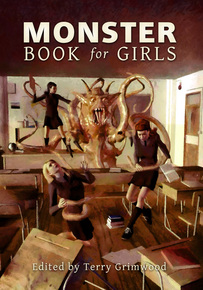The Hound of the Baskervilles is probably the most filmed Sherlock Holmes story ever which means the plot is pretty well known so I assume that's why Mark Gatiss decided to ditch most of the plot in his adaptation for
Sherlock.
Instead of a family curse and an escaped convict we got conspiracy theories and a hidden army base developing secret weapons. Not nearly as satisfying in my opinion. Especially as it robs us of the chance to see what Gatiss would have done with the scene when Holmes and Watson meet Henry Baskerville at a London hotel. Every screen version of
Hound that I remember seeing always feels that the pace is starting to slacken at this point and so decides to jazz things up a bit. For example, in the Hammer version Sir Henry is attacked by a tarantula and in the Ian Richardson version Sir Henry is shot at by someone wielding a rifle disguised as a walking stick. Although this definitely makes things more exciting both these adaptations have forgotten that the whole point of the story is that Sir Henry is in fear for his life from a gigantic
hound. The story isn't called
The Tarantula of the Baskervilles or
The Rifle Disguised as a Walking Stick of the Baskervilles.
But if Gatiss changed the plot then at least he kept the characters. Or their names at any rate. Dr Mortimer is now a therapist, Barrymore is an army major, Stapleton a government scientist -- I won't mention who Selden became because it's a bit of a plot twist. So the characters were all completely different in both role and personality despite keeping their original names. Except for Sir Henry Baskerville who became Henry Knight (perhaps the new surname was to make up for no longer having a knighthood.) The other change in name was for the Grimpen Mire which became the Grimpen Minefield which led to a scene which I'm guessing surprised absolutely nobody.
Actually, the Grimpen Mire/Minefield scene highlighted the fact that although Gatiss largely ignored the novel's plot he did occasionally retain certain ideas from the original story. So there was still a mysterious signal being flashed across the moors at night. And Holmes got to deliver his little speech about Watson not being luminous but rather he acts as a conductor of light, stimulating Holmes's genius. There's also a quick reminder (and subversion) of the fact that Holmes actually disappeared off-page for most of the original novel.
There were also various nods to other tales from the Holmes canon. Gatiss's explanation for the "gigantic hound" was inspired by 'The Devil's Foot.' And the idea of Holmes using a fictitious bet in order to get information out of an unwilling witness comes from 'The Blue Carbuncle.' (Gatiss even nicks the bit from the Jeremy Brett adaptation of this story where Holmes is forced to make good on his 'bet' with Watson.) There's a reference to the required "seven per cent" for Holmes's stimulants, although here they were not cocaine. Gatiss also used the famous quote about how eliminating the impossible means that whatever remains, no mater how improbable, must be the truth, although I can't remember which story this comes from offhand. And there's probably loads more references that I'm missing; my knowledge of Holmes trivia isn't as sharp as it used to be.
Anyway, I didn't find
The Hounds of Baskerville as entertaining as last week's
A Scandal in Belgravia. It wasn't necessarily bad but it wasn't particularly compelling either. The story was
X-Files lite; the comedy bits too broad; firearms were as easy to acquire as peppermints; despite being a brilliant detective Sherlock somehow completely failed to find the cigarettes that Watson had hidden in the flat; the "mind palace" bit was just an excuse to use effects that were old hat about five minutes after the credits for
Minority Report finished; the constant references to dogs scattered throughout the story (right down to casting Russell Tovey, best known for playing a werewolf in
Being Human) became heavy-handed. And the idea of Holmes being shaken by the possibility of the demolition of his perfectly rational world-view after not being able to explain away his sighting of the hound would have been a lot more convincing if it wasn't totally obvious what had really happened. Even I figured it out and I'm an idiot.
But of course the worst thing about
The Hounds of Baskerville was the final scene which promised the return of Moriarty next week. Hopefully that wasn't a prison he was released from but a drama school where he received some much needed acting lessons.
Another thing, which applies to
Sherlock as a whole but which I keep forgetting to mention: I'm fed up with everyone mistakenly thinking Holmes and Watson are a gay couple and the way Watson chases anything in a skirt. I know this is an attempt to stop speculation among the viewers that the characters might be gay but it stopped being funny about halfway through episode one of the first series. Moffatt and Gatiss made their point about Holmes and Watson being straight ages ago; they really need to start exploring other aspects of the characters' personalities. And as far as I can recall the whole idea of Watson being a ladies man in the canonical stories comes from a single line in one of the later stories where Holmes says Watson is still married even though it had previously been stated that his wife passed away in an earlier story. For a start this could well be a continuity error of the kind Conan Doyle occasionally made -- exactly where is Watson's old army injury, Sir Arthur? -- and even if it isn't, all it shows is that Watson remarried after becoming a widower. That hardly makes him Russell Brand.


